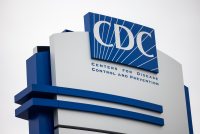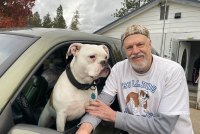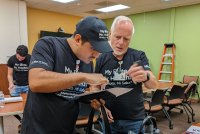Latest KFF Health News Stories
Thousands of Experts Hired to Aid Public Health Departments Are Losing Their Jobs
As the covid-19 pandemic raged, an independent nonprofit tied to the Centers for Disease Control and Prevention hired an army of seasoned professionals to fill the gaps in the country’s public health system. Now, the money has largely run out, and state and local health departments are again without their expertise.
California Stockpiles Penalties From Uninsured Residents Instead of Lowering Care Costs
California is collecting hundreds of millions of dollars a year in tax penalties from uninsured residents. The state was supposed to use the money to help lower costs for Californians who couldn’t afford insurance but hasn’t distributed any of the revenue it has collected — citing uncertain economic times.
‘Impending Intergenerational Crisis’: Americans With Disabilities Lack Long-Term Care Plans
Many Americans with intellectual and developmental disabilities do not have long-term plans for when family members can no longer care for them. Families, researchers, and advocates worry that has set the stage for a crisis in which people with disabilities could end up living in institutional settings.
‘An Arm and a Leg’: No Money, No Job, No Health Care? Not Always.
For many Americans, it’s open enrollment season for 2023 health insurance. One listener asked: If you don’t have a job and are too old to be on your parents’ plan, does it make sense to rely on charity care? This episode breaks it all down.
Journalists Tackle the Midterms and Open Enrollment
KHN and California Healthline staff made the rounds on national and local media this week to discuss their stories. Here’s a collection of their appearances.
Fentanilo en la escuela secundaria: una comunidad de Texas se enfrenta al mortal opioide
Desde julio, cuatro estudiantes del Distrito Escolar Independiente Consolidado de Hays, al sur de Austin, han muerto por sobredosis de fentanilo.
KHN’s ‘What the Health?’: The Midterm Shake-Up
Election night went better than expected for Democrats. Although they could still lose control of one or both houses of Congress, the predicted “red wave” for Republicans failed to materialize. Meanwhile, voters in both red and blue states approved ballot measures to protect abortion rights. Alice Miranda Ollstein of Politico, Rachel Cohrs of Stat, and Sarah Karlin-Smith of the Pink Sheet join KHN’s Julie Rovner to discuss these topics and more. Also this week, Rovner interviews Carolee Lee, the former jewelry magnate, about her efforts to boost gender equity in medical research.
Por qué algunos estados quieren garantizar Medicaid para los niños desde que nacen hasta los 6 años
La posibilidad de inscribir a los niños en Medicaid, desde que nacen hasta los 6 años, de manera continua y sin papeleo, ayudaría, entre otras cosas, a prevenir las brechas de cobertura.
Fentanyl in High School: A Texas Community Grapples With the Reach of the Deadly Opioid
The first fentanyl-related deaths of students in an area south of Austin, Texas, were reported over the summer. The school district, parents, and students are trying to deal with the aftermath.
Homelessness Among Older People Is on the Rise, Driven by Inflation and the Housing Crunch
In Montana and across the nation, homeless shelters are reporting that people older than 60 are a growing proportion of their populations.
Stopping the Churn: Why Some States Want to Guarantee Medicaid Coverage From Birth to Age 6
Oregon has become the first state to allow kids to stay in the government health care program from birth to age 6, no matter if their household income changes. California, Washington, and New Mexico are pursuing similar policies.
South Dakota Voters Approved Medicaid Expansion, but Implementation May Not Be Easy
South Dakotans voted to expand the state’s Medicaid program to cover thousands of additional low-income residents. But as other conservative states have shown, voter approval doesn’t always mean politicians and administrators will rush to implement the change.
El tema del aborto ayuda a los demócratas a minimizar pérdidas en estas elecciones
Entre otros problemas que enfrentaron los votantes el martes, los residentes de Dakota del Sur aprobaron una expansión de Medicaid bajo la Ley de Cuidado de Salud a Bajo Precio.
Abortion Issue Helps Limit Democrats’ Losses in Midterms
Although control of Congress was still undecided Wednesday, Republicans seemed poised to take power in the House, while the fate of the Senate remained too close to call. Economic issues were at the top of voters’ minds, but abortion access also played a large role in their decisions.
People With Long Covid Face Barriers to Government Disability Benefits
Some people with long covid have fallen through the cracks of the government’s disability system, which was time-consuming and difficult to navigate even before the pandemic.
Ad Goes Too Far With Claim That Joe Biden Promotes Surgery for Trans Teens
Even some medical experts who are skeptical of gender-affirming care say the White House is not promoting breast removal and genital surgery for teens. But that’s not what an ad, funded by a group led by a former adviser to President Donald Trump, would have you believe.
Defense Department Health Plan Cuts Its Pharmacy Network by Nearly 15,000 Outlets
Many of the pharmacies were small, independent operations that had decided not to participate next year because of the lowered reimbursement being offered. But they were surprised by an early dismissal, and some patients with specialized drug needs could face difficulties in the transition.
Pfizer’s Covid Cash Powers a ‘Marketing Machine’ on the Hunt for New Supernovas
While sales of its covid vaccines are falling, Pfizer plans to triple the price of the shots and use its bonanza from government contracts to buy and develop new blockbusters.
Listen: With Abortion Rights on the Ballot in Michigan, Women Tell Their Stories
Women who need abortion care come to Michigan from surrounding states that already have banned the procedure. A clinic in suburban Detroit allowed a reporter to interview patients, doctors, and nurses to understand what is at stake as voters decide whether to guarantee abortion access in the Michigan Constitution.
Voluntarios electorales quieren que los latinos sepan que votar es bueno para su salud
En los últimos años, las instituciones de atención de salud a lo largo de todo Estados Unidos han realizado esfuerzos para promover el voto, inspiradas por la creciente creencia de que votar mejora la salud de las personas y las comunidades.



















